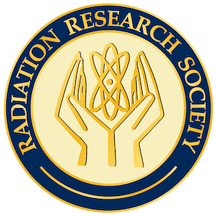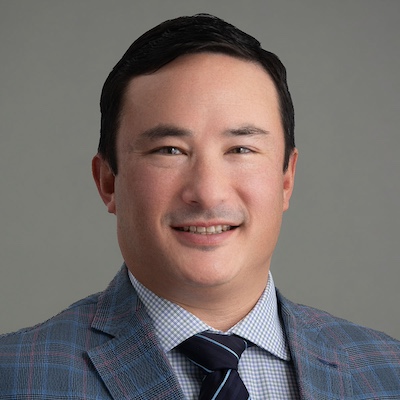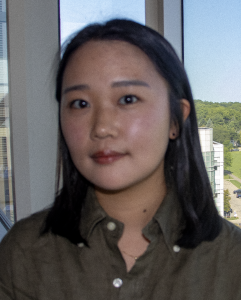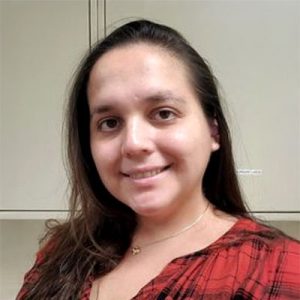 The 71st Annual International Meeting of the Radiation Research Society (RRS) features presentations, posters, and a workshop from faculty and students in the Department of Human Oncology. The conference will be held in San Juan, Puerto Rico September 21-24, 2025.
The 71st Annual International Meeting of the Radiation Research Society (RRS) features presentations, posters, and a workshop from faculty and students in the Department of Human Oncology. The conference will be held in San Juan, Puerto Rico September 21-24, 2025.
The full conference and program details can be found HERE.
Randy Kimple, MD, PhD, FASTRO, MBA
 Dr. Kimple will be moderating a research panel at the 1-2-3 to Cesium Free workshop held just prior to the RRS Annual Meeting.
Dr. Kimple will be moderating a research panel at the 1-2-3 to Cesium Free workshop held just prior to the RRS Annual Meeting.
This workshop will bring together experts to discuss making the transition from cesium irradiators to x-ray based systems and is sponsored by the Office of Radiological Security and National Nuclear Security Administration.
Quaovi Sodji, MD, PhD
 Session Title: “ECI Spotlight Symposium”
Session Title: “ECI Spotlight Symposium”
Date/Time: Sunday, 9/21; 10:15 AM-12:15 PM
Abstract Title: Low-dose Radiopharmaceutical Therapy Synergizes CAR T cell Therapy Against Neuroblastoma
This study explores how combining radiopharmaceutical therapy (RPT) with CAR T-cell therapy can improve the treatment of neuroblastoma, a solid tumor that has shown resistance to CAR T-cells alone. In a mouse model, a single, low dose of the RPT agent 177Lu-NM600 followed by GD2-specific CAR T-cells resulted in complete tumor regression. The RPT pre-treatment was found to enhance the CAR T-cells’ ability to kill cancer cells by increasing the secretion of cytotoxic proteins (perforin, granzyme B, TNF-α) and immunostimulatory (IL-7) while decreasing the immunosuppressive signal TGF-β1. RPT also made the neuroblastoma cells more vulnerable to attack by upregulating Fas (CD95) expression. This research suggests that RPT can be used to boost the effectiveness of CAR T-cell therapy against solid tumors, though further research is needed to optimize the radiation dose and timing for individual patients.
Pippa Cosper, MD, PhD
 Session Title: S24: DNA repair / Genomic instability and radiation sensitivity
Session Title: S24: DNA repair / Genomic instability and radiation sensitivity
Date/Time: Tuesday, 9/23; 10:15 AM-12:15 PM
Abstract Title: Chromosomal instability as a therapeutic vulnerability
Chromosomal instability (CIN) is common in cancer and is caused by radiation. We hypothesized that pre-existing CIN sensitizes cancer cells to radiation. Using isogenic cell lines, patient-derived xenografts, and clinical data from the RTOG 9512 trial, we demonstrated that higher pre-treatment CIN significantly correlates with increased sensitivity to radiation and improved patient outcomes. Mechanistically, we show that drugs like Docetaxel and MMAE radiosensitize cancer cells by inducing CIN, specifically multipolar spindles, which leads to cell death from catastrophic aneuploidy rather than mitotic arrest. In conclusion, CIN is a promising biomarker for predicting radiation response, and drugs that induce CIN are potential radiation sensitizers.
Zachary Morris, MD, PhD
 Session Title: S23 Radiation Effects on Immune Cells and Tumor Microenvironment
Session Title: S23 Radiation Effects on Immune Cells and Tumor Microenvironment
Date/Time: Tuesday, 9/23; 10:15 AM-12:15 PM
Abstract Title: Priming and propagating anti-tumor immunity using radiation therapy and radiopharmaceuticals
Radiation therapy elicits complex and dose-dependent effects on the tumor microenvironment and tumor infiltrating immune cells. This talk will address translational approaches to potentiating the in situ vaccine effect of radiation therapy, including the effects of dose heterogeneity and the potential for therapeutic benefit from combination with intra-tumoral injection of immune adjuvants. Novel applications of radiopharmaceutical therapies in combination with immunotherapies will also be discussed, including dose optimization, selection of radioisotopes, effects of dose heterogeneity, and approaches to clinical translation.
Poster Presentations
- Sophie Bice: Lutetium-177 induces prolonged DNA damage, higher levels of chromosomal instability and increased cell death than equivalent doses of external beam radiation
- Yeseo Choi: Fractionated radiotherapy induces downregulation of type IFN response, and a prolonged pro-inflammatory response compared to a single biologically equivalent dose
- Loren Lopez Rivera: Radio-sensitizing activity of SMAC-mimetics AT406 shows HPV-dependent efficacy in Head and Neck Squamous Cell Carcinoma (HNSCC) subtypes
- Cristina Paz: Acute and chronic immunological response to radiation-induced damage in murine submandibular gland
- Maya Takashima: Radiopharmaceutical therapy dose heterogeneity from 177Lu-PNT6555 induces diverse immune responses in a syngeneic murine tumor model




